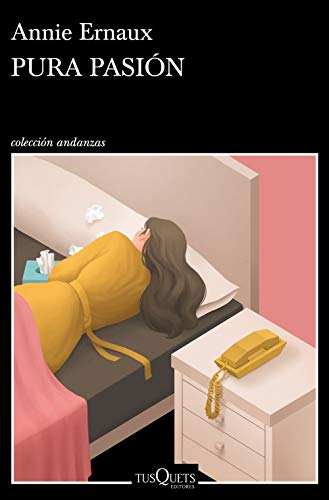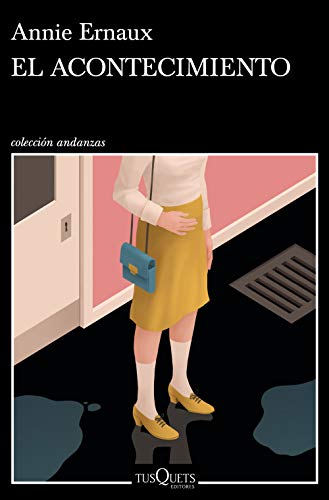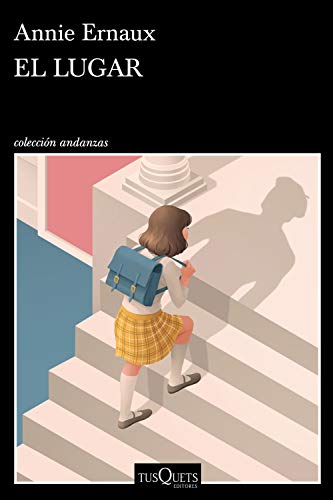No literature as committed as the one that conveys an autobiographical vision. And it's not just about pulling memories and experiences to compose a plot from the most extreme circumstances faced in darker historical moments. For Annie Ernaux, everything narrated takes on another dimension by making the plot realism in the first person. A closer realism that overflows with authenticity. Her literary figures acquire greater meaning and the final composition is a true transition to inhabit other souls.
And Ernaux's soul deals with transcribing, combining purity, clairvoyance, passion and rawness, a kind of emotional intelligence at the service of all kinds of stories, from a first-person view to mimicry of everyday life that ends up splashing us all in any of the scenes presented to us.
With an unusual capacity for the complete attunement of the human, Ernaux tells us about his life and our lives, he projects scenarios like theater performances where we end up seeing ourselves on stage reciting the usual soliloquies made up of thoughts and drifts of the psyche determined to elucidate what is happening with the nonsense of improvisation that is the existence that would sign the same kundera.
We did not find in the bibliography of this author Nobel Prize for Literature 2022 a narrative compelled by the action as sustenance of the plot. And yet it is magical to see how life advances with that strange slow cadence of moments to finally be pushed, in strange contrast, to a passing of the years that is barely appreciated. Literature made magic of the passage of time between human concerns of the closest.
Top 3 Recommended Books by Annie Ernaux
Pure passion
Love stories try to convince us of the immortality of touch or the epic of emotions. This story is born as a vision of a muddy romanticism in our days. The focus on the stage is on the woman who waits in love while everything happens and her life is suspended over a will-o'-the-wisp. It is not that love is disenchantment, nor that lukewarmness finally always prevails. The question is to observe without connotations to get impressions about a character that we ourselves have to take care of justifying, of finding the emotions that move him...
«From the month of September of last year, I did nothing but wait for a man: that he call me and that he come to see me»; This is how the story begins about the passion of an educated, intelligent, financially independent woman, divorced and with grown children, who loses her mind over a diplomat from an Eastern country "who cultivates his resemblance to Alain Delon" and feels a special weakness for good clothes and flashy cars.
If the subject that gives rise to this novel is apparently trivial, the life that encourages it is not at all. Very few times before had he spoken to himself with such stark impudence, for example, about the masculine sex or about the desire that stupefies, that disrupts. The aseptic and naked writing of Annie Ernaux manages to introduce us, with the precision of an entomologist observing an insect, in the feverish, ecstatic and devastating madness that any woman —and any man?—, anywhere in the world, has experienced without doubt at least once in your life.
The event
It is exactly that. Sometimes a pregnancy just happens. Like the unexpected chapter of a novel that we are reading and that suddenly takes us completely out of focus. One does not know where to go, perhaps, being a writer. And it may be that everything that comes after points to a complete change of genre and plot.
In October 1963, when Annie Ernaux is in Rouen studying philology, she discovers that she is pregnant. From the first moment she has no doubt that she does not want to have that unwanted creature. In a society in which abortion is penalized with imprisonment and a fine, she finds herself alone; she even her partner ignores the matter. In addition to the abandonment and discrimination on the part of a society that turns its back on her, there remains the struggle against the deep horror and pain of a clandestine abortion.
The place
The routine that pastes existence with its turning points that point up or down. The small transforming moments and Ernaux's magical ability to turn the moment into a fascinating setting where the longed-for ends up coexisting with the unexpected and that chance that also traces the paths.
In April 1967, the author and protagonist, at that time a young aspiring high school teacher, passed the training exam at a Lyon high school to the pride (and suspicion) of her father, a former worker who, coming from rural areas and after working Hardly, he has ended up becoming the owner of a small business in the provinces. For that father, all this means another step forward in his difficult social ascent; however, this satisfaction does not last long, since he dies two months later.
Father and daughter have crossed their respective "places" within society. But they have looked at each other suspiciously, and the distance between them has become increasingly painful. The place focuses, therefore, not only on the complexes and prejudices, the uses and behavioral norms of a social segment with diffuse limits, whose mirror is the cultured and educated urban bourgeoisie, but also on the difficulty of living in a space own within society.



